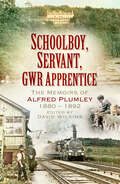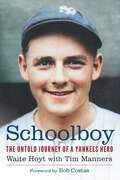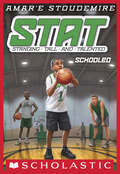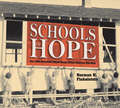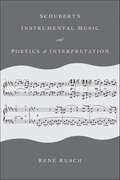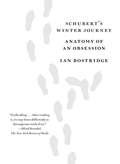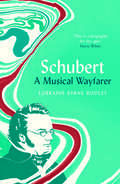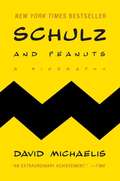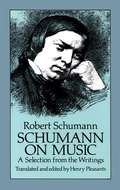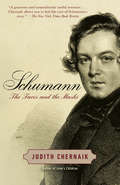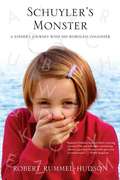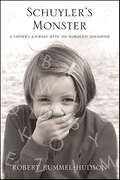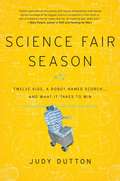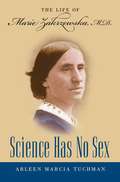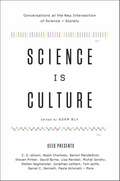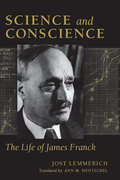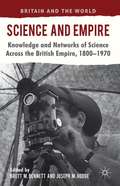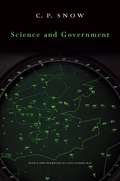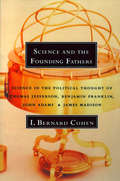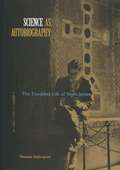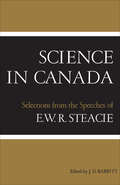- Table View
- List View
Schoolboy, Servant, GWR Apprentice: The Memoirs of Alfred Plumley 1880–1892
by David WilkinsAlfred Plumley, son of a coachman, was born in 1874 in Somerset’s Mendip Hills. Written in his old age, this memoir of his youth was discovered in an auction sale. In it, Alfred vividly describes his country childhood and first job as a serving boy at the grand house on the hill above his village. At age 16, Alfred decides to improve his prospects by ‘going on the railway’ and is sent to a tiny village station on the Somerset coast. He quickly comes to love his new life and, undeterred by an unhappy temporary posting to the grim and chaotic engine yards of Bristol, ends up spending forty-five years as a GWR employee. Alfred writes charmingly, and always with the authentic voice of a West Country lad. His memoir has been edited by David Wilkins who adds just the right amount of detail to place the story in its proper historical context.
Schoolboy: The Untold Journey of a Yankees Hero
by Tim Manners Waite HoytWaite &“Schoolboy&” Hoyt&’s improbable baseball journey began when the 1915 New York Giants signed him as a high school junior, for no pay and a five-dollar bonus. After nearly having both his hands amputated and cavorting with men twice his age in the hardscrabble Minor Leagues, he somehow ended up the best pitcher for the New York Yankees in the 1920s. Based on a trove of Hoyt&’s writings and interview transcripts, Tim Manners has reanimated the baseball legend&’s untold story, entirely in Hoyt&’s own words. Schoolboy dives straight into early twentieth-century America and the birth of modern-day baseball, as well as Hoyt&’s defining conflict: Should he have pursued something more respectable than being the best pitcher on the 1927 New York Yankees, arguably the greatest baseball team of all time? Over his twenty-three-year professional baseball career, Hoyt won 237 big league games across 3,845 ⅔ innings—and one locker room brawl with Babe Ruth. He also became a vaudeville star who swapped dirty jokes with Mae West and drank champagne with Al Capone, a philosophizer who bonded with Lou Gehrig over the meaning of life, and a funeral director who left a body chilling in his trunk while pitching an afternoon game at Yankee Stadium. Hoyt shares his thoughts on famous moments in the golden age of baseball history; assesses baseball legends, including Ty Cobb, Stan Musial, and Pete Rose; and describes the strategies of baseball managers John McGraw, Miller Huggins, and Connie Mack. He writes at length about the art of pitching and how the game and its players changed—and didn&’t—over his lifetime. After retiring from baseball at thirty-eight and coming to terms with his alcoholism, Hoyt found some happiness as a family man and a beloved, pioneering Cincinnati Reds radio sportscaster with a Websterian vocabulary spiked with a Brooklyn accent. When Hoyt died in 1984 his foremost legacy may have been as a raconteur who punctuated his life story with awe-inspiring and jaw-dropping anecdotes. In Schoolboy he never flinches from an unsparing account of his remarkable and paradoxical eighty-four-year odyssey.
Schooled: Stat: Standing Tall And Talented (STAT #4)
by Amar'e StoudemireEleven-year-old Amar’e Stoudemire tries out for the school basketball team in this novel by the NBA legend himself!Eleven-year-old Amar’e Stoudemire has had a lot of success playing in tournaments and street ball. But now it’s time to try out for his school’s team. Amar’e is good enough to play with the older kids, and should probably be a starter. But the players that have been there the longest generally get the most playing time. Amar’e must deal with helping his team in a different way than he’s used to . . . Based on the life of All-Star NBA sensation Amar’e Stoudemire, who overcame many obstacles to become one of the most popular figures in sports today, this is a great read packed with basketball action.“A series of chapter books that celebrate sports, smarts and friendship . . . Amar’e is a likable protagonist.” —Kirkus Reviews
Schools of Hope: How Julius Rosenwald Helped Change African American Education
by Norman H. FinkelsteinWhen Booker T. Washington, the famed African American educator, asked Julius Rosenwald, the wealthy president of Sears, Roebuck and Company and noted philanthropist, to help him build well-designed and fully equipped schools for black children, the face of education in the South changed for the better. It was the early 1900s, a time of discrimination, racial segregation, and inadequate education for African Americans. Rosenwald created a special fund that in just twenty years built more than 5,300 schools attended by 600,000 black students. In this inspiring story, noted nonfiction writer Norman H. Finkelstein spotlights one man's legacy and the power of community action. Includes quotations, a detailed bibliography, and index.
Schopenhauer A Biography
by David E. CartwrightArthur Schopenhauer (1788-1860) was one of the most original and provocative thinkers of the nineteenth century. He spent a lifetime striving to understand the meaning of living in a world where suffering and death are ubiquitous. In his quest to solve "the ever-disquieting riddle of existence," Schopenhauer explored almost every dimension of human existence, developing a darkly compelling worldview that found deep resonance in contemporary literature, music, philosophy, and psychology. This is the first comprehensive biography of Schopenhauer written in English. Placing him in his historical and philosophical contexts, David E. Cartwright tells the story of Schopenhauer's life to convey the full range of his philosophy. He offers a fully documented portrait in which he explores Schopenhauer's fractured family life, his early formative influences, his critical loyalty to Kant, his personal interactions with Fichte and Goethe, his ambivalent relationship with Schelling, his contempt for Hegel, his struggle to make his philosophy known, and his reaction to his late-arriving fame. The Schopenhauer who emerges in this biography is the complex author of a philosophy that had a significant influence on figures as diverse as Samuel Beckett, Jorge Luis Borges, Emile Durkheim, Sigmund Freud, Thomas Hardy, Thomas Mann, Friedrich Nietzsche, and Ludwig Wittgenstein.
Schrödinger: Life and Thought
by Walter MooreIn the first comprehensive biography of Erwin Schrödinger--a brilliant and charming Austrian, a great scientist, and a man with a passionate interest in people and ideas--the author draws upon recollections of Schrödinger's friends, family and colleagues, and on contemporary records, letters and diaries. Schrödinger led a very intense life, both in his research and in the personal realm. This book portrays his life against the backdrop of Europe at a time of change and unrest. His best known scientific work was the discovery of wave mechanics, for which he was awarded the Nobel Prize in 1933. In Dublin, he wrote his most famous and influential book What is Life?, which attracted some of the brightest minds of his generation into molecular biology. This highly readable biography of a fascinating and complex man will appeal to anyone interested in the history of our times, and in the life and thought of one of the great men of twentieth-century science.
Schubert's Instrumental Music and Poetics of Interpretation
by René RuschMusic scholarship's views of Franz Schubert's instrumental works continue to evolve. How might aesthetic values, historiographies, revisions to the composer's biography, and disciplinary commitments affect how we interpret his music?Schubert's Instrumental Music and Poetics of Interpretation explores the aesthetic positions and operations that underlie critical assessments of Schubert's instrumental works. In six chapters, each devoted to one or two of Schubert's pieces, René Rusch examines the conditions that have prompted scholarship to reevaluate the composer's music and legacy, considers how different conclusions about his music may be reflective of certain aesthetic values, investigates the role of narrative in both music analysis and constructions of history, and explores alternative forms of coherence through updated analyses of the composer's instrumental works. Rusch's observations and comparative analyses address four significant areas of scholarly focus in Schubert studies, including his approach to chromaticism, his unique musical forms, the relationship between his music and biography, and the influence of Beethoven.Drawing from a range of philosophical, hermeneutic, historical, biographical, theoretical, and analytical sources, Schubert's Instrumental Music and Poetics of Interpretation offers readers a unique and innovative foray into the poetics of contemporary analyses of Schubert's instrumental music and develops new ways to engage with his repertoire.
Schubert's Songs: A Biographical Study
by Dietrich Fischer-DieskauIn this book Dietrich Fischer-Dieskau, one of the greatest interpreters of German Lieder, conducts a masterly study of the genesis and development of Schubert's music, revealed in terms of the composer's own life and growth to psychological maturity. Of the six hundred and eight Lieder that Schubert composed during his brief life, only a very small proportion was widely known until Dietrich Fischer-Dieskau recorded three volumes of them and began to introduce the neglected ones into his concert programs. This book sets the songs against the background of the composer's life in Vienna, revealing the relevance of his Lieder to the age he lived in. With the outstanding musicianship and complete sincerity that are the hallmarks of his art, the author discusses the brilliance and diversity of the Lieder settings, from the simple strophic to the "through composed" song and the great song cycles; and he deals in detail with the texts, which range from those by Goethe and Shakespeare to the often indifferent verses of the composer's friends. For singers and accompanists, professional and amateur musicians, record enthusiasts, and concert-goers everywhere, this is a book of inestimable value--by a great musician--about one of the greatest musicians of all time. Probably the best-known baritone in the Western world, Dietrich Fischer-Dieskau was born in Germany in 1925. Since the beginning of his career in post-World War II Germany, his influence on singers and singing has been enormous. Renowned for his performances of the songs of Schubert, Brahms, Schumann, Beethoven, Mozart, Verdi, and Wagner, he is acclaimed by musicians and critics as one of the supreme artists of our time.
Schubert's Winter Journey
by Ian BostridgeAn exploration of the world's most famous and challenging song cycle, Schubert's Winter Journey (Winterreise), by a leading interpreter of the work, who teases out the themes--literary, historical, psychological--that weave through the twenty-four songs that make up this legendary masterpiece.Completed in the last months of the young Schubert's life, Winterreise has come to be considered the single greatest piece of music in the history of Lieder. Deceptively laconic--these twenty-four short poems set to music for voice and piano are performed uninterrupted in little more than an hour--it nonetheless has an emotional depth and power that no music of its kind has ever equaled. A young man, rejected by his beloved, leaves the house where he has been living and walks out into snow and darkness. As he wanders away from the village and into the empty countryside, he experiences a cascade of emotions--loss, grief, anger, and acute loneliness, shot through with only fleeting moments of hope--until the landscape he inhabits becomes one of alienation and despair. Originally intended to be sung to an intimate gathering, performances of Winterreise now pack the greatest concert halls around the world. Drawing equally on his vast experience performing this work (he has sung it more than one hundred times), on his musical knowledge, and on his training as a scholar, Bostridge teases out the enigmas and subtle meanings of each of the twenty-four lyrics to explore for us the world Schubert inhabited, his biography and psychological makeup, the historical and political pressures within which he became one of the world's greatest composers, and the continuing resonances and affinities that our ears still detect today, making Schubert's wanderer our mirror.From the Hardcover edition.
Schubert: A Musical Wayfarer
by Lorraine BodleyAn insightful biography of the great composer, revealing Schubert’s complex and fascinating private life alongside his musical genius Brilliant, short-lived, incredibly prolific—Schubert is one of the most intriguing figures in music history. While his music attracts a wide audience, much of his private life remains shrouded in mystery, and significant portions of his work have been overlooked. In this major new biography, Lorraine Byrne Bodley takes a detailed look into Schubert’s life, from his early years at the Stadtkonvikt to the harrowing battle with syphilis that led to his death at the age of thirty-one. Drawing on extensive archival research in Vienna and the Czech Republic and reconsidering the meaning of some of his best-known works, Bodley provides a fuller account than ever before of Schubert’s extraordinary achievement and incredible courage. This is a compelling new portrait of one of the most beloved composers of the nineteenth century.
Schumann on Music: A Selection from the Writings
by Robert Schumann Henry PleasantsIncludes 61 important critical pieces Schumann wrote for the Neue Zeitschrift fur Musik 1834-1844. Perceptive evaluations of Beethoven, Chopin, Schubert, other giants; also Spohr, Moscheles, Field, other minor masters. Annotated.
Schumann: The Faces and the Masks
by Judith ChernaikA groundbreaking account of Robert Schumann, a major composer and key figure of Romanticism, whose life and works have been the subject of intense controversy since his early death in a mental asylum.Schumann: The Faces and the Masks draws us into the milieu of the Romantic movement, which enraptured poets, musicians, painters, and their audiences in the early nineteenth century and beyond, even to the present day. It reveals how Schumann (1810-1856) embodied all the contrasting themes of Romanticism--he was intensely original and imaginative but also worshipped the past; he believed in political, personal, and artistic freedom but insisted on the need for artistic form based on the masters: Bach, Haydn, Mozart, and Beethoven. It details his deep involvement with other composers of his time, such as Chopin and Mendelssohn, Liszt and Brahms, as well as the literary lights of the age--Johann Wolfgang von Goethe, Heinrich Heine, E.T.A. Hoffmann--whose works gave inspiration to his compositions and words to his songs. Drawing on hitherto unpublished archive material, as well more established sources of journals, letters, and publications, Judith Chernaik provides enthralling new insight into Schumann's life and his music: his sexual escapades, his fathering of an illegitimate child, the facts behind his courtship of Clara Wieck--already a noted young concert pianist--his passionate marriage to her despite the opposition of her manipulative father, his passionate marriage, and the ways his many crises fed into the dreams and fantasies of his greatest works, turning his tumultuous life into music that speaks directly to the heart.
Schuyler's Monster: A Father's Journey with His Wordless Daughter
by Robert Rummel-HudsonWhen Schuyler Rummel-Hudson was eighteen months old, a question about her lack of speech by her pediatrician set in motion a journey that continues today. When she was diagnosed with bilateral perisylvian polymicrogyria (an extremely rare neurological disorder), her parents were given a name for the monster that had been stalking them from doctor to doctor, and from despair to hope, and back again. Once they knew why Schuyler couldn't speak, they needed to determine how to help her learn. They took on educators and society to give their beautiful daughter a voice, and in the process learned a thing or two about fearlessness, tenacity, and joy. More than a memoir of a parent dealing with his child's disability, Schuyler's Monster is a tale of a little girl who silently teaches a man filled with self-doubt how to be the father she needs. Robert Rummel-Hudson has been writing online since 1995. His work has been recognized by the Diarist Awards at diarist. net, including citations for Best Writing, Best Overall Journal, Best Account of a Public or News Event, Best Dramatic Entry, and the Legacy Hall of Fame Award. He has served three times as a featured panelist at JournalCon, an annual conference for online writers. His online writing has been featured in articles in the Austin Chronicle , the Irish Times and the New Haven Register . Robert and his family currently live in Plano, Texas. When Schuyler was 18 months old, a question about her lack of speech by her pediatrician set in motion a journey that continues today. When she was diagnosed with Bilateral perisylvian polymicrogyria (an extremely rare neurological disorder caused by a malformation of the brain), her parents were given a name for the monster that had been stalking them throughout the search for the correct answer to Schuyler''s mystery. Once they knew why she couldnâ t speak, they needed to determine how to help her learn. Schuylerâ s Monster is more than the memoir of a parent dealing with a childâ s disability. It is the honest, funny, and heart-wrenching story of the relationship between a unique and ethereal little girl and her father who struggles with whether or not he is the right dad for the job. It is the story of a family seeking answers to a childâ s dilemma, but it is also a chronicle of their unique relationships, formed without traditional language against the expectations of a doubting world. It is the story of a little girl who silently teaches a man filled with self-doubt how to be the father she needs. "A gripping explication, shot through with equal parts horror and hope, of how parenthood can turn ordinary people into passionate advocates. "â " Neal Pollack, author of Alternadad "Robert Rummel-Hudson is brave enough to reveal the damage the discovery of his child''s condition did to his marriage and to his own sense of self. He manages to repair some of the damage through close involvement with Schuyler and vigorous campaigning on her behalf. His memoir is honest, often painful and deeply personal. "â " Charlotte Moore, author of George & Sam "The book is engaging and honestâ "I''m sure it will help many parents who are struggling to find the most loving way to help their children who have â issues. â "â " Dana Buchman, author of A Special Education "The monster in this heartfelt memoir is polymicrogyria, an extremely rare brain malformation that, in the case of Rummel-Hudson''s daughter Schuyler, has completely impaired her ability to speak. During her first three years, as her parents seek to find out what hidden ''monster'' is causing her wordlessness, they endure ''two years of questions and tests and at least one unsatisfactory diagnosis. '' But while Rummel-Hudson initially rages at God for giving Schuyler ''a life that would never ever be what we''d imagined it to be,'' his depiction of her next four years becomes a study not only in Schuyler''s vivacious and resilient personality, but also in the redeeming power of understanding and a ''stup
Schuyler's Monster: A Father's Journey with His Wordless Daughter
by Robert Rummel-HudsonSchuyler's Monster is an honest, funny, and heart-wrenching story of a family, and particularly a little girl, who won't give up when faced with a monster that steals her voice but can't crush her spirit.When Schuyler was 18 months old, a question about her lack of speech by her pediatrician set in motion a journey that continues today. When she was diagnosed with Bilateral perisylvian polymicrogyria (an extremely rare neurological disorder caused by a malformation of the brain.), her parents were given a name for the monster that had been stalking them from doctor visit to doctor visit and throughout the search for the correct answer to Schuyler's mystery. Once they knew why she couldn't speak, they needed to determine how to help her learn. They didn't know that Schuyler was going to teach them a thing or two about fearlessness, tenacity, and joy. Schuyler's Monster is more than the memoir of a parent dealing with a child's disability. It is the story of the relationship between a unique and ethereal little girl floating through the world without words, and her earthbound father who struggles with whether or not he is the right dad for the job. It is the story of a family seeking answers to a child's dilemma, but it is also a chronicle of their unique relationships, formed without traditional language against the expectations of a doubting world. It is a story that has equal measure of laughter and tears. Ultimately, it is the tale of a little girl who silently teaches a man filled with self-doubt how to be the father she needs. Schuyler can now communicate through assistive technology, and continues to be the source of her father's inspiration, literary and otherwise.
Science Fair Season: Twelve Kids, a Robot Named Scorch . . . and What It Takes to Win
by Judy DuttonThis is the engaging true story of kids competing in the high-stakes, high-drama world of international science fairs. Every year the Intel International Science & Engineering Fair brings together 1,500 high schoolers from more than 50 countries to compete for over $4 million dollars in prizes and scholarships. These amazing kids are doing everything from creating bionic prosthetics to conducting groundbreaking stem cell research, from training drug-sniffing cockroaches to building a nuclear reactor. In Science Fair Season, Judy Dutton follows twelve teens looking for science fair greatness and tells the gripping stories of their road to the big competition. Some will win, some will lose, but all of their lives are changed forever.The Intel International Science & Engineering Fair is the most prominent science fair in the country, and it takes a special blend of drive, heart, and smarts to win there. Dutton goes inside the inner sanctum of science fair competitions and reveals the awe-inspiring projects and the competitors there. Each of the kids--ranging from a young Erin Brokovich who made the FBI watch list for taking on a big corporation, to a quietly driven boy who lives in a run-down trailer on a Navajo reservation, to a wealthy Connecticut girl who dreams of being an actress and finds her calling studying bees, to a troubled teenager in a juvenile detention facility, to the next Bill Gates--take readers on an unforgettable journey. Along the way, Science Fair Season gives readers a glimpse of America's brightest young minds and shows how our country is still a place for inventors and dreamers--the "geeks" our future depends upon.ce & Engineering Fair brings together 1,500 high schoolers from more than 50 countries to compete for over $4 million dollars in prizes and scholarships. These amazing kids are doing everything from creating bionic prosthetics to conducting groundbreaking stem cell research, from training drug-sniffing cockroaches to building a nuclear reactor. In Science Fair Season, Judy Dutton follows twelve teens looking for science fair greatness and tells the gripping stories of their road to the big competition. Some will win, some will lose, but all of their lives are changed forever.The Intel International Science & Engineering Fair is the most prominent science fair in the country, and it takes a special blend of drive, heart, and smarts to win there. Dutton goes inside the inner sanctum of science fair competitions and reveals the awe-inspiring projects and the competitors there. Each of the kids--ranging from a young Erin Brokovich who made the FBI watch list for taking on a big corporation, to a quietly driven boy who lives in a run-down trailer on a Navajo reservation, to a wealthy Connecticut girl who dreams of being an actress and finds her calling studying bees, to a troubled teenager in a juvenile detention facility, to the next Bill Gates--take readers on an unforgettable journey. Along the way, Science Fair Season gives readers a glimpse of America's brightest young minds and shows how our country is still a place for inventors and dreamers--the "geeks" our future depends upon.
Science Has No Sex
by Arleen Marcia TuchmanGerman-born Marie Zakrzewska (1829-1902) was one of the most prominent female physicians of nineteenth-century America. Best known for creating a modern hospital and medical education program for women, Zakrzewska battled against the gendering of science and the restrictive definitions of her sex. In Science Has No Sex, Arleen Tuchman examines the life and work of a woman who continues to challenge historians of gender to this day. At a time when most women physicians laid claim to "female" qualities of care and nurturance to justify their professional choice, Zakrzewska insisted that all physicians, regardless of gender, should depend upon the rational faculties developed through training in the natural sciences. She viewed science as a democratizing tool--anyone could master science, she asserted, and therefore the doors to the elite profession of medicine should be opened to all.Shedding light on the changes that radically transformed medicine in the late nineteenth century, Tuchman's analysis also demonstrates how Zakrzewska's activism is important to the ongoing debate over the relationship between science and sex.
Science Is Culture: Conversations at the New Intersection of Science + Society
by Adam BlySeed magazine brings together a unique gathering of prominent scientists, artists, novelists, philosophers and other thinkers who are tearing down the wall between science and culture.We are on the cusp of a twenty-first-century scientific renaissance. Science is driving our culture and conversation unlike ever before, transforming the social, political, economic, aesthetic, and intellectual landscape of our time. Today, science is culture. As global issues—like energy and health—become increasingly interconnected, and as our curiosities—like how the mind works or why the universe is expanding—become more complex, we need a new way of looking at the world that blurs the lines between scientific disciplines and the borders between the sciences and the arts and humanities.In this spirit, the award-winning science magazine Seed has paired scientists with nonscientists to explore ideas of common interest to us all. This book is the result of these illuminating Seed Salon conversations, edited and with an introduction by Seed founder and editor in chief Adam Bly. Science Is Culture includes:E. O. Wilson + Daniel C. DennetSteven Pinker + Rebecca GoldsteinNoam Chomsky + Robert TriversDavid Byrne + Daniel LevitinJonathan Lethem + Janna LevinBenoit Mandelbrot + Paola AntonelliLisa Randall + Chuck HobermanMichel Gondry + Robert StickgoldAlan Lightman + Richard ColtonLaurie David + Stephen SchneiderTom Wolfe + Michael GazzanigaMarc Hauser + Errol Morris
Science and Conscience: The Life of James Franck
by Jost LemmerichJames Franck (1882-1964) was one of the twentieth century's most respected scientists, known both for his contributions to physics and for his moral courage. During the 1920s, Franck was a prominent figure in the German physics community. His research into the structure of the atom earned him the Nobel Prize in Physics in 1925. After the Nazis seized power in 1933, Franck resigned his professorship at Gottingen in protest against anti-Jewish policies. He soon emigrated to the United States, where, at the University of Chicago, he began innovative research into photosynthesis.
Science and Empire
by Brett M. Bennett Joseph M. HodgeOffering one of the first analyses of how networks of science interacted within the British Empire during the past two centuries, this volume shows how the rise of formalized state networks of science in the mid nineteenth-century led to a constant tension between administrators and scientists.
Science and Government
by C. P. SnowScience and Government is a gripping account of one of the great scientific rivalries of the twentieth century. The antagonists are Sir Henry Tizard, a chemist from Imperial College, and Frederick Lindemann (Lord Cherwell), a physicist from the University of Oxford. The scientist-turned-novelist Charles Percy Snow tells a story of hatred and ambition at the top of British science, exposing how vital decisions were made in secret and sometimes with little regard to truth or the prevailing scientific consensus. Tizard, an adviser to a Labor government, believed the air war against Nazi Germany would be won by investing in the new science of radar. Lindemann favored bombing the homes of German citizens. Each man produced data to support his case, but in the end what mattered was politics. When Labor was in power, Tizard’s view prevailed. When the Conservatives returned, Lindemann, who was Winston Churchill’s personal adviser, became untouchable. Snow’s 1959 Two Cultures Rede Lecture propelled him to worldwide fame. Science and Government, originally the 1960 Godkin Lectures at Harvard, has been largely forgotten. Today the space occupied by scientists and politicians is much more contested than it was in Snow’s time, but there remains no better guide to it than Snow’s dramatic narrative.
Science and the Founding Fathers: Science in the Political Thought of Thomas Jefferson, Benjamin Franklin, John Adams, and James Madison
by I. Bernard CohenGeneral readers, students of American history, and professional historians alike will profit from reading this engaging presentation of an aspect of American history conspicuously absent from the usual textbooks and popular presentations of the political thought of this crucial period. Thomas Jefferson was the only president who could read and understand Newton's Principia. Benjamin Franklin is credited with establishing the science of electricity. John Adams had the finest education in science that the new country could provide, including "Pnewmaticks, Hydrostaticks, Mechanicks, Staticks, Opticks." James Madison, chief architect of the Constitution, peppered his Federalist Papers with reference to physics, chemistry, and the life sciences. For these men science was an integral part of life--including political life. This is the story of their scientific education and of how they employed that knowledge in shaping the political issues of the day, incorporating scientific reasoning into the Constitution.
Science as Autobiography: The Troubled Life of Niels Jerne
by Thomas Soderqvist Niels Kaj Jerne David Mel PaulThis biography probes the unusual mind, the dramatic life, and the outstanding scientific work of Danish-born immunologist Niels Jerne (1911-1994). Jerne's Nobel Prize-winning achievements in the field of immunology place him in the pantheon of great twentieth-century biomedical theorists, yet his life is perhaps even more interesting than his science. Science as Autobiography tells Jerne's story, weaving together a narrative of his experiences, emotional life, and scientific work, and arguing that the source of Jerne's extraordinary creativity as a scientist rested in his life story. Drawing on Jerne's own extensive archives, on more than 150 hours of conversation with him, and on the recollections of over 90 friends, colleagues, and relatives, Thomas Soderqvist explores the myths and legends about Jerne - his unparalleled powers of concentration and analytical keenness, his preference for conversation in a Paris cafe over work in the laboratory, his problematic personal life, Soderqvist punctuates the book with Jerne's own voice and makes the argument that Jerne's life experience and view of himself became a metaphorical resource for the construction of his theories. The author also probes the moral issues that surrounded Jerne's choice to sacrifice the welfare of his family in favor of scientific goals and the pursuit of excellence. --BOOK JACKET. Title Summary field provided by Blackwell North America, Inc. All Rights Reserved
Science in Canada: Selections from the Speeches of E.W.R. Steacie
by J. D. BabbittThe relationship between science and government, currently the subject of much lively debate, was one to which E.W.R. Steacie devoted a great deal of his energy and outstanding talents. As President of the National Research Council, a key position which he held for ten years, Dr. Steacie played an important role through the inspiration and direction that he gave to science in Canada. He was an outspoken critic of any attempt to formulate a broad general plan for science, and of any intrusion of administrative considerations into scientific establishments. At the time of his death in 1962 Dr. Steacie was the accepted leader of Canadian Science, as J.D. Babbitt says in the Introduction to this book. He goes on to say that this was a distinction he had attained 'not alone because of his official position as President of the National Research Council but also because of his outstanding research accomplishments, his sure feel for scientific values, and his strong personality. In Dr. Steacie official position and personal ability were happily matched; it seemed almost that the wide responsibilities of the National Research Council had been designed with such a man in view.' E.W.R. Steacie joined the National Research Council of Canada in 1939 as Director of the Division of Chemistry, became Vice-President (Scientific) in 1950 and, in 1952, President of the Council. He served as President for ten years, and during that time delivered more than 90 speeches and addresses. Using extracts from these speeches, Dr. Babbitt has skillfully brought together the remarks of Dr. Steacie on the development of science in Canada and has given an orderly presentation of his views on the organization of scientific activities. The topics covered include Science and the University, Science and the Humanities, Science and the National Academy, Science and Society, Government Science, Industrial Science, and International Science. Dr. Steacie's pungent, almost aphoristic style, and the directness of his statements will make this book an exciting and important one not only for scientists who are vitally concerned with the questions he considers, but also for that section of the general public who has for too long heard only the opinions of non-scientists--strongly felt, but often ill informed--on the relationship of science and society.
Science in Environmental Policy: The Politics of Objective Advice
by Ann Campbell KellerScientists often bring issues to the policy agenda, translating scientific questions into everyday language and political terms. When Roger Revelle characterized Earth as a spaceship in testimony to Congress in 1957, his evocative language framed the issue of our planet's climate vulnerability in a way that technical discourse could not. In this book, Ann Campbell Keller examines the influence of scientists on environmental policymaking and makes the novel argument that scientists' adherence to the role of neutral advisor varies over the course of the policymaking process. Keller divides the policy process into three stages--agenda setting, legislation, and implementation--and compares scientists' influence on acid rain and climate change policy at these different stages over the course of several decades. She finds that scientists face more pressure to uphold the ideal of objectivity as policy-making processes advance and become more formalized, and thus are more likely to engage in advocacy and persuasion in the earlier, less formal, agenda-setting stage of the process. In the later, more structured legislative and implementation phases, scientists--working hard to give the appearance of neutral expertise--cede the role of persuader to others. Keller draws on theoretical work in political science and science studies and on empirical evidence from scientific reports, news coverage, congressional hearings, and interviews. Focusing on comparable cases and considering scientists' participation in them over time, she offers unique insights into how the context of decision making affects scientists' policy influence and emphasizes the multiple pathways by which scientific meaning is constructed in public settings.
